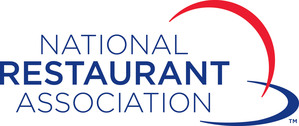
Report reveals difference between restaurants' and employees' perceptions of DEI initiatives
New ELEVATE – A Menu for Change framework provides innovative tools for DEI success in restaurants of all sizes
WASHINGTON, Aug. 3, 2022 /PRNewswire/ -- Today, the National Restaurant Association released a landmark diversity, equity, and inclusion (DEI) report measuring the awareness and perceived effectiveness of DEI practices among employers and employees in the restaurant industry. The research, conducted in collaboration between the National Restaurant Association, the National Restaurant Association Educational Foundation (NRAEF), the Multicultural Foodservice & Hospitality Alliance (MFHA), and Cornell University Nolan School of Hotel Administration, found an association between the impact of DEI strategies and foodservice workers' job satisfaction. The study also highlighted differences between a company's perceptions about its DEI effectiveness and its employees' experiences. Ultimately, the report reinforces the critical importance of effective DEI policies in driving employee engagement and retention within the restaurant industry.
To support the development of effective DEI programs across the industry, MFHA created ELEVATE – A Menu for Change. The framework provides restaurant operators with proactive business strategies and plans for building a more diverse, inclusive, and engaged workforce.
"This research highlights the opportunity for companies to elevate their DEI game," said Gerry Fernandez, President and Founder of the Multicultural Foodservice & Hospitality Alliance. "We have this incredible opportunity to listen, learn, and act to improve our DEI practices. Committing to and investing in these changes can increase retention of current restaurant industry employees and enhance the overall perception of working in the restaurant industry. Our mission is to open doors of opportunity for people from all backgrounds and we are eager to help do whatever it takes to ensure our industry is the gold standard for diversity, equity, and inclusion."
Key Findings of the Report
Employer reporting of employee demographics over-estimates the number of historically marginalized communities in the restaurant industry, especially at the mid- and upper levels of management, compared with how employees self-report.
When asked about the current profile of diversity in the foodservice industry, individuals typically reported differently than the enterprise. This suggests businesses may perceive an environment of diversity that is different than what is experienced by employees. If left unchecked, this has the potential to minimize the experience of historically marginalized communities; limit an organization's ability to recognize the need for a more diverse workforce and change recruiting policies accordingly; and create an environment for turnover. Key findings include:
- Enterprise-level reporting of gender demographics is different than individual employee reporting. Enterprises underreport the percentage of female employees and overreport the representation of non-binary/non-conforming employees compared with how employees self-report (55% of individuals identify as female, enterprises report 35%; 1% of individuals identify as non-binary/non-conforming, enterprises report 18%).
- A greater percentage of individual employees self-identify as Hispanic, Black/African American, and other races than enterprises report.
- Enterprises reported a higher representation of people with disabilities than individuals indicated; 16% of individual employees self-reported having a disability, while enterprises report 34%.
Employee and employer perceptions of current DEI initiatives differed on the effectiveness and awareness of the policies.
Enterprises generally believe they have created work environments that support DEI, yet awareness of those policies is often weak among current employees, and even more so among former employees. This can lead employees to believe that DEI is not a strategic priority, which can ultimately lead to a lack of job satisfaction and higher turnover. Key findings include:
- 92% of enterprises report having dedicated DEI initiatives, however there is limited awareness of those policies among employees. For example, 78% of enterprises reported having employee diversity training or awareness events, while only 48% of current employees and 34% former employees reported receiving this training.
- 73% of enterprises believe that a diverse workforce improves a company's innovation, yet 54% of enterprises believe that money spent on diversity programs is not having a noticeable impact.
- 58% of enterprises believe that they provide adequate DEI training.
- 30% of current employees and 14% of former employees believe the diversity programs in place at their restaurants have a positive impact on the workplace.
When restaurant employees leave the industry, many do not return. Respect and a culture of belonging are associated with job satisfaction and intent to stay in the industry.
In general, the research suggests that current employees are satisfied with their work and overall have positive views about working in the restaurant and foodservice industry. The report indicates a correlation between employee sentiment about working in the industry and supervisor support. Addressing work challenges, investing in training and team member development, and creating authentic and sustainable employment opportunities through a culture of belonging and inclusion can help to address these gaps. Key findings include:
- 72% of current employees expect to be employed by their current restaurant/organization in one year.
- 77% of former restaurant industry employees are not currently looking for employment in the industry.
- 16% of former restaurant employees expect to return to work in the industry.
ELEVATE – A Menu for Change Framework: A Proven Guide to Creating Successful DEI Programs
To drive positive change in DEI initiatives for enterprises and employees, the MFHA created ELEVATE – A Menu for Change – a step-by-step toolkit with proven best practices and proactive business strategies. Each step reflects actions to be taken by company management to create and foster effective DEI programs. The framework includes tools to help enterprises assess DEI throughout its organization, identify stakeholders, examine what it currently offers, and establish a strong foundation for meaningful change. It also covers topics such as fostering stakeholder communication, establishing goals and success metrics, conveying value to employees, and resources for building successful training and measurement practices.
MFHA plans to support industry execution of the ELEVATE framework by providing a range of supplemental resources, including expert-led DEI sessions among stakeholders, employers and employees, management coaching, and ongoing support for groups of similar organizations moving through the framework together.
"Our people are our greatest asset," said Rob Gifford, President of the National Restaurant Association Educational Foundation. "At the NRAEF, our daily work is to assist the industry in growing this workforce and supporting their career advancement. Both large and small operations face the same challenges: recruiting more diverse leaders and improving retention and development of the current workforce. MFHA's ELEVATE framework is essential to creating best practices — rooted in rigorous research and proven successes — that our community can quickly and easily put into practice, strengthening our workforce, and building greater job satisfaction and interest in industry careers."
"The restaurant workforce is the most diverse across the U.S. economy. The new insight provided by our research and the MFHA's ELEVATE framework creates an opportunity to develop a standard for meaningful DEI programs across the industry," said Michelle Korsmo, President & CEO of the National Restaurant Association and CEO of the National Restaurant Association Educational Foundation. "Our industry historically has welcomed all people looking to chase their American dream with a solid career and ownership potential. As our current and future workforces focus on new goals and change their expectations, we want the industry to continue to be a place that welcomes all and supports personal and professional growth."
The research survey was conducted in August and September 2021 in two tracks: An online survey of 200 enterprise representatives from a population representative of the U.S. restaurant and foodservice industry; and an online survey of current and former employees, and individuals who have never worked in the industry. The combined 5,180 individual respondents were representative of the U.S. restaurant and foodservice industry workforce.
Find more information about the DEI Report on the Restaurant Industry 2022 and ELEVATE – A Menu for Change framework here.
Founded in 1919, the National Restaurant Association is the leading business association for the restaurant industry, which comprises nearly 1 million restaurant and foodservice outlets and a workforce of 14.5 million employees. Together with 52 State Associations, we are a network of professional organizations dedicated to serving every restaurant through advocacy, education, and food safety. We sponsor the industry's largest trade show (National Restaurant Association Show); leading food safety training and certification program (ServSafe); unique career-building high school program (the NRAEF's ProStart). For more information, visit Restaurant.org and find @WeRRestaurants on Twitter, Facebook and YouTube.
As the philanthropic foundation of the National Restaurant Association, the National Restaurant Association Educational Foundation's (NRAEF) mission of service to the public is dedicated to enhancing the industry's training and education, career development and community engagement efforts. The NRAEF and its programs work to Attract, Empower and Advance today's and tomorrow's restaurant and foodservice workforce. NRAEF programs include: ProStart® — a high-school career and technical education program; Restaurant Ready — partnering with community based organizations to provide "opportunity youth" with skills training and job opportunities; Military — helping military servicemen and women transition their skills to restaurant and foodservice careers; Scholarships — financial assistance for students pursuing restaurant, foodservice and hospitality degrees; and the Restaurant & Hospitality Leadership Center (RHLC) — accredited apprenticeship programs designed to build the careers of service professionals. For more information on the NRAEF, visit ChooseRestaurants.org. Click here for the National Restaurant Association Educational Foundation's 2021 Annual Impact Report.
The Multicultural Foodservice & Hospitality Alliance (MFHA) is dedicated to advancing diversity, equity, and inclusion (DEI) across the $899 billion restaurant, foodservice, and hospitality industry. Founded by Gerry Fernandez in 1996, MFHA serves as a leading resource for companies large and small seeking to improve DEI across their organization and to become culturally competent. MFHA provides tailored solutions and guidance that draw from a broad range of best practices, research, DEI partnerships and expertise in current and emerging social issues. www.mfha.net
SOURCE National Restaurant Association







Share this article